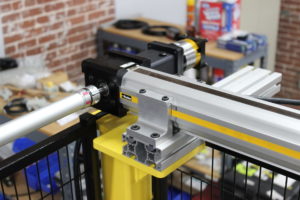Automation Glossary: Amplifier
What Is An Amplifier?
An amplifier, commonly referred to as a “controller”, is an electronic device used to enhance weak electrical signals received from sensors within an automation system. By boosting these signals, the amplifier ensures they are strong enough for reliable transmission, maintaining the integrity and accuracy of the data being communicated. This amplification is crucial for providing adequate power to control various actuators or to trigger programmed responses within the system. As a result, the overall operation of the automation system becomes more precise and dependable, enabling efficient performance and reducing the likelihood of errors or malfunctions in complex processes.
What Are Amplifiers Used For?
- Long-distance Signal Transmission: Amplifiers ensure weak sensor signals from remote locations reach the controller unit without degradation, crucial in large industrial settings.
- Powering Actuators: Amplifiers boost control signals to power valves, motors, or other actuators, ensuring they operate effectively.
- Interfacing with Low-power Sensors: Amplifiers boost weak electrical signals from sensors to levels compatible with the automation system’s controller for accurate data processing.
- Signal Filtering and Noise Reduction: Some amplifiers filter out noise and interference, ensuring the amplified signal accurately represents the measured parameter.
- Safety Systems: Amplifiers enhance signals from emergency shut-off buttons or safety sensors, ensuring strong responses to trigger safety protocols in critical situations.
![R88M-1A[] / R88D-1SAN[]-ECT](https://www.crossco.com/wp-content/uploads/2024/04/omron-servos-and-amplifiers.jpg)
Related Terms
Occupancy detection within vehicles is a technological system engineered to determine the presence and number of individuals inside a vehicle....
A tensile tester is a device designed to quantify the tensile strength of substances, representing the maximum force a material can endure before fracturing under tension....




